‘Bala’ means child and ‘Amrit’ means elixir. Balamrutham is a honey-based syrup which works at multiple levels to keep your child hale and hearty. Taken regularly, it ensures good digestion and smooth bowel movement.
Features & Benefits
- Balamrutham stimulates appetite. Taleesa Patra (Abbies webiana) along with Maricha stimulate the taste buds and the digestive juices. This, in turn, nurtures good appetite and health in your child.
- It improves digestion. Balamrutham is a combination of deep-pachana drugs, i.e. Drugs which makes digestion and metabolism competent.
Draksha (Vitis vinifera), a powerful anti-oxidant and haematinic, helps in improving blood heme levels and reducing oxidative stress.
- The honey-based syrup dosage form sustains the gut biome and keeps away intestinal worms.
Dosage and Instructions
Adult: 10-15 ml of Balamrutham twice or thrice daily.
Child: 5-10 Ml of Balamrutham Twice Daily.
Suitable for all ages (Physician’s discretion is advised).
Key Ingredients
Twak (Cinnamom verum)
It is used for Neurological disorders, Cardiovascular diseases, Oxidative stress, Inflammatory disorders, Diabetes, Microbial infections, Cancer and other conditions extensively in Ayurveda.
Ela (Elettaria cardomum)
It is commonly called Elaichi. It has a very good anti-bacterial and anti-fungal properties. It helps in reducing inflammation.
Patra (Cinnamomum tamala)
It is called Tejpatta, and Tejpat. in English, named as Indian Bay Leaf, it is an Indian spice as well as an Ayurvedic medicine. Additionally, it stimulates the digestive enzymes, which helps to improve the digestion of food and increases the bioavailability of the nutrients during the digestion process in the intestine.
Pippali (Piper longum)
Pippali is known as a “Tridoshic” herb as it suits all body types. Thus regular consumption of Pippali in the suggested quantity can help you to immune your body to quite an extent. Pippali has Anti-microbial, Anti-inflammatory activity. Consumption of Pippali is said to exhibit antispasmodic action and hypoglycaemic effect which is believed to lower blood sugar level. It is also reported to be the antagonist in respiratory depression. Also due to its cooling post-digestive effect consumption of Pippali is considered a safe and effective option to avoid all sorts of digestive disorders.
Maricha (Piper nigrum)
Black pepper is native to the Western Ghats of India. It is cultivated for its fruit, which is widely used as a spice and in traditional Indian medicine preparation. Black pepper is an appetizer and carminative commonly used in the treatment of digestive systems related complaints like dyspepsia, indigestion, flatulence, nausea, diarrhea and colic pain. in the respiratory system it acts like Expectorant used in Cough, cold, and chest congestion. Externally used as an analgesic and in Vitiligo it stimulates the production of pigments.
Shunti (Zingiber officinalae)
Basically the dry form of ginger, it is a common spice in the Indian kitchen.It bears an enormous number of pharmacological activities among those, Neuroprotective activity and activity against colon cancer have facilitated the the extent of further research for finding out less toxic and more potent drugs for the better treatment of related diseases. Ginger is extensively used around the world in foods as a spice. Ginger has been used for cold-induced disease, nausea, asthma, cough, colic, heart palpitation, swellings, dyspepsia, loss of appetite, dyspnoea, vomiting, gastritis, thirst, postpartum disorders and rheumatism. It is a carminative antipyretic and is used to treat bronchitis, gastrointestinal disorders, and piles.
Draksha (Vitis vinifera)
Grapes and Grape seeds are packed with nutrients such as Vitamin C and E, which have strong antioxidant activity making it beneficial in revitalizing the skin. Regular application of Grapes in the form of a face pack protects skin from harmful ultraviolet radiation as well as the damage caused due to free radicals thereby reducing wrinkles and dark spots. Daily intake of Grape juice has the ability to fight certain diseases as it helps enhance the immune system.
Guda (Jaggery)
Jaggery is known to produce heat and provides instant energy to the human body. It prevents constipation due to its laxative property and activates digestive enzymes. As per Ayurveda, eating Jaggery daily after meals improves digestion due to its Ushna (hot) property.
Sariva (Hemidesmus indicus)
Sariva, a semi-erect herb that has various phytoconstituents. These compounds add medicinal value to the herb. Sariva has been used in the Ayurvedic system of medicine for many years. It is used in the treatment of conditions like skin disorders, diarrhea, dysentery, eye diseases, syphilis, leukoderma, dyspepsia, chronic fever, leprosy, asthma, and others.
Dhataki (Woodfordia Fruticosa )
Dhataki is also known as Bahupuspika in Ayurveda. It is the flower of Dhataki that has significant importance in the traditional Indian medicine. According to Ayurveda, Dhataki is considered beneficial for female disorders such as menorrhagia (heavy menstrual bleeding) and leucorrhea (white discharge from the vagina) due to its Kashaya (astringent) property. Dhataki is beneficial for skin problems (such as acne, pimples etc.) and might assist in wound healing due to its antimicrobial and anti-inflammatory properties. Applying a paste of Dhataki powder along with honey or water on the skin helps in reducing swelling and steps up wound healing due to its Ropan (healing) and Sita(cold) properties.
Speciality:100% Natural. Purely herbal. Vegetarian.














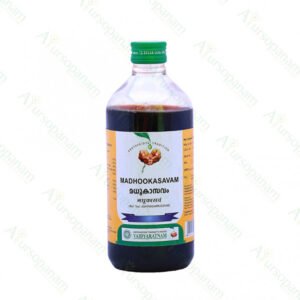

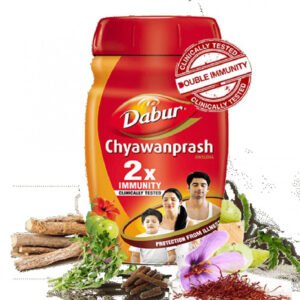
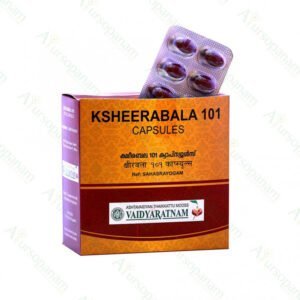


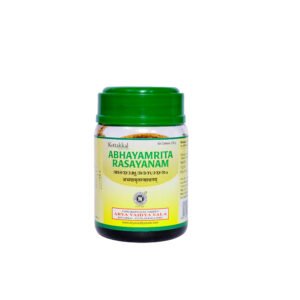




















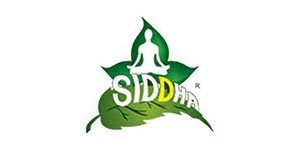











Ratings & Customer Reviews
Reviews
There are no reviews yet.